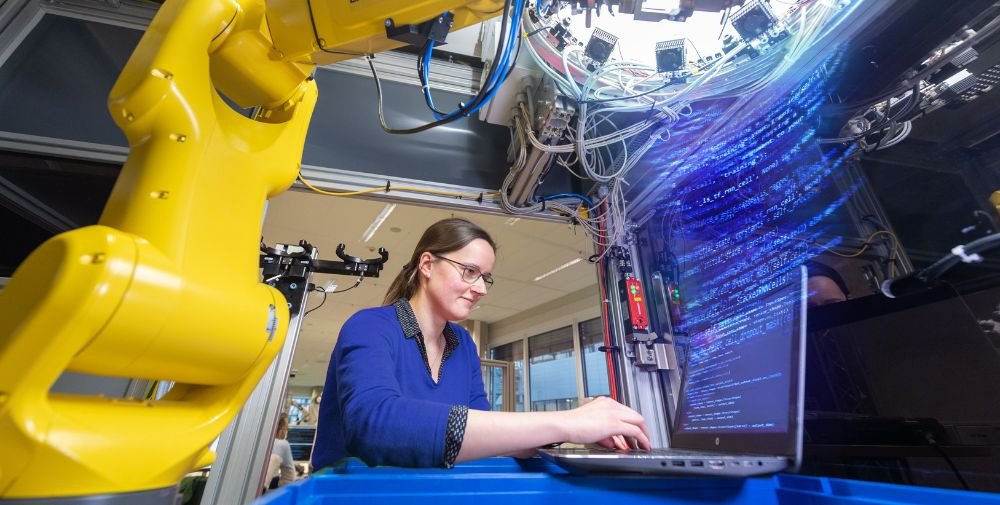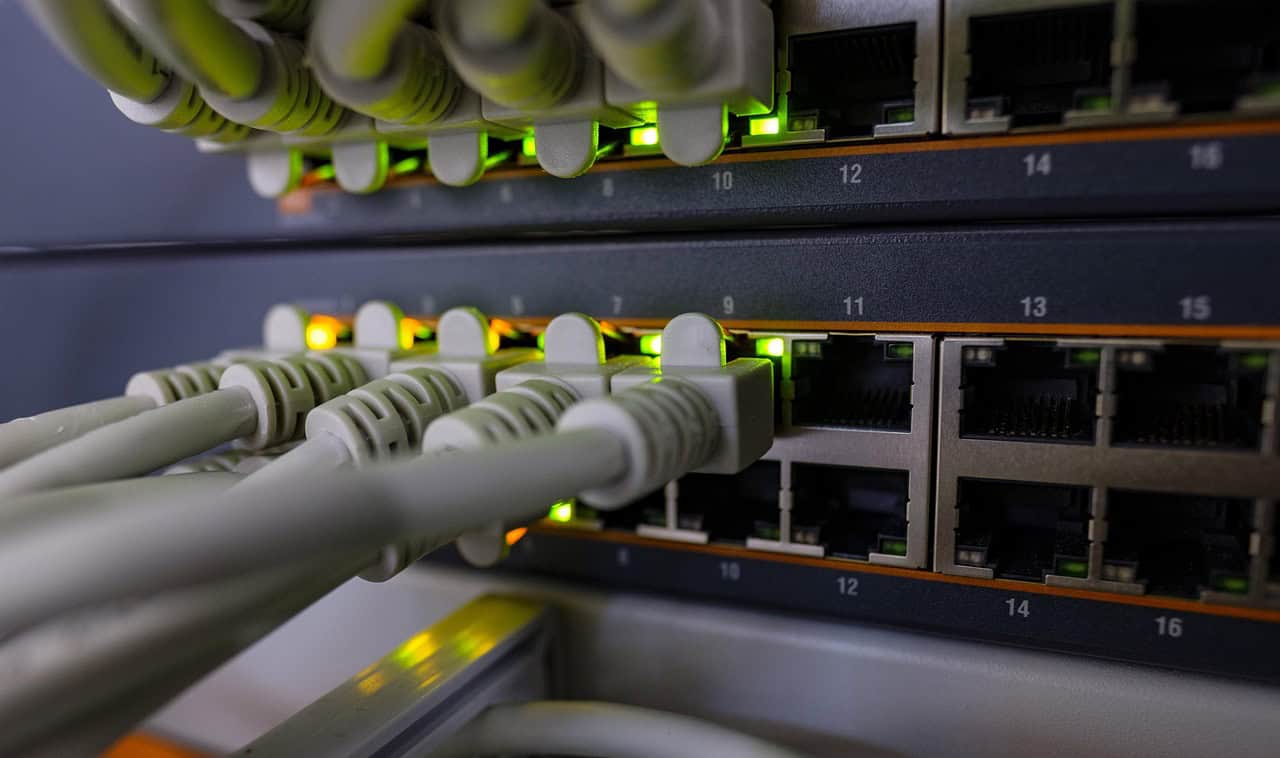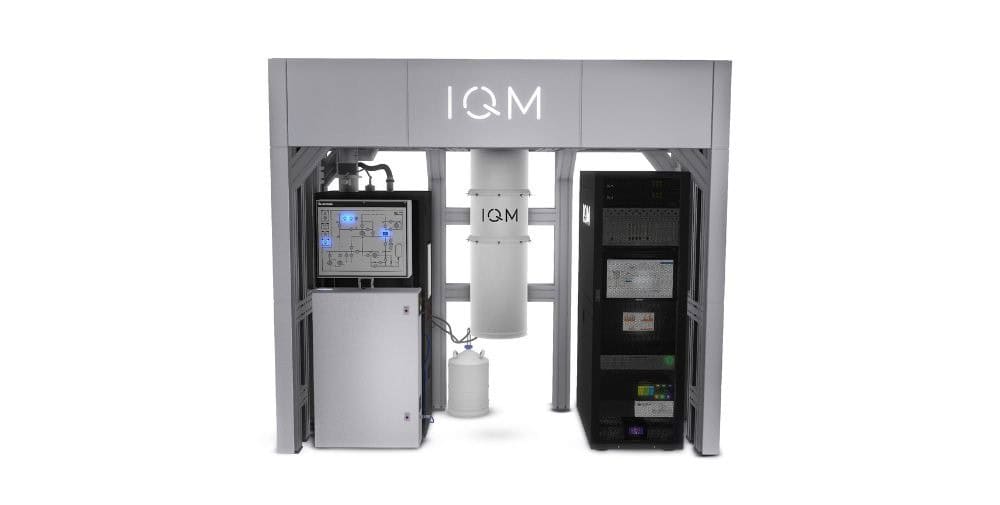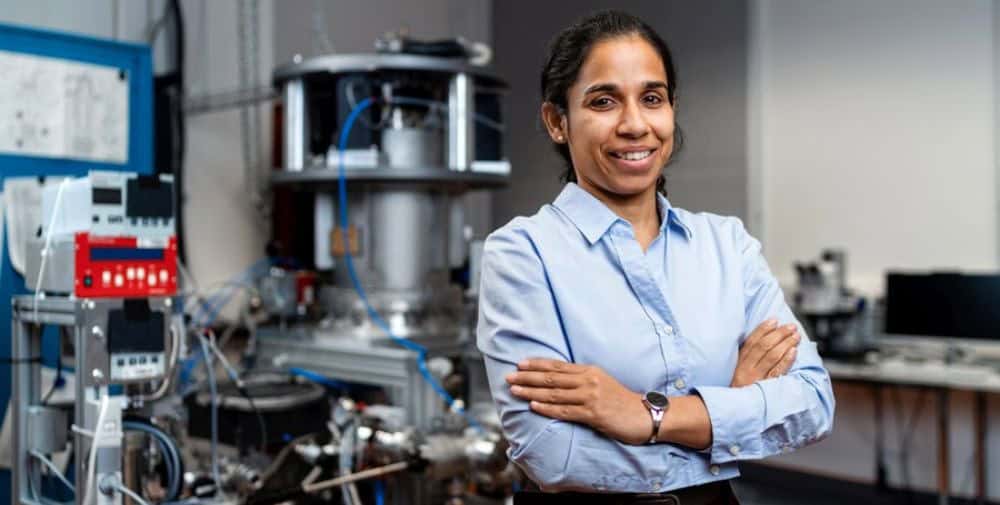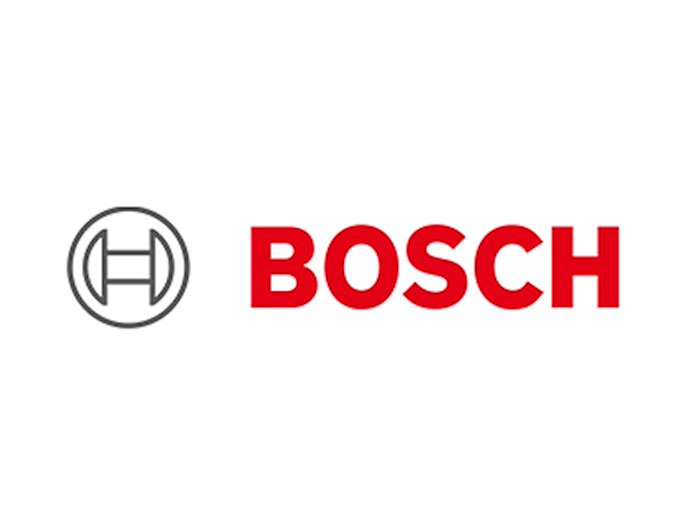
Because AI pays off: depending on plant size and production, artificial intelligence can help achieve productivity gains and cost savings ranging from several hundred thousand euros to the low single-digit millions per year and plant. “AI has great potential for innovation and can make human work even more productive. As a manufacturing company, established factory equipment supplier and Industry 4.0 trendsetter, Bosch wants to play a leading role in the development and application of industrial AI,” explains Hartung.
AI practice: Bosch projects deliver measurable added value
Bosch pilot plants are already using AI in production planning, monitoring and control. At the plant in Hildesheim, for example, cycle times were reduced by 15 percent during the production ramp-up of new lines thanks to AI-based data analysis; at the plant in Stuttgart-Feuerbach, new algorithms reduced component testing processes from three and a half minutes to three minutes. “With generative AI, we are now taking the next step in the evolution of artificial intelligence and taking modern manufacturing to a new level,” says Bosch Board of Management member and Chief Digital Officer Tanja Rückert. Bosch is relying on its own expertise: the software models for generative AI were developed in Bosch research and are now being implemented in the field by the Bosch plants. While one plant uses synthetically generated images to reliably inspect welds of copper wires in electric motor production using AI, the other plant is focusing on the quality assurance of high-pressure pumps.
AI boost: generative AI makes the seemingly impossible possible
For years, fuel injection components were inspected manually at the Feuerbach plant. Due to the nature and complexity of the products and differences in the structure of the production lines, neither rule-based nor AI-supported optical inspection was possible. The new approach: a scalable generative AI that recognizes different variants of a product and defect patterns and takes into account different arrangements and sequences in the production process. Bosch research has developed a foundation model as a basis, fed by large data sets from the Bosch production network. The foundation model is refined and specified for on-site applications using synthetically generated data. The aim is for the AI to be able to check the components independently and only submit “doubtful cases” to visual inspectors. At the plant in Hildesheim, synthetically generated images have already been successfully used for training in the first series systems in electric motor production. The artificially generated images cannot be distinguished from real images with the human eye. The plant assumes that the new approach will shorten the project duration by six months compared to conventional methods and result in productivity increases in the six-figure euro range per year. An expansion of the AI approach to other Bosch locations is planned. “When developing AI solutions, we draw on the potential offered by the Bosch manufacturing network of around 230 plants. And we use new technologies. Generative AI helps to reconcile supposed opposites: Individualization and scaling – both are possible at the same time with this technology,” says Rückert.
AI status: artificial intelligence widespread in Bosch plants
One thing many Bosch plants have in common is that they are not only AI pioneers, but are also consistently focusing on Industry 4.0. “Bosch has been digitalizing and connecting its own plants and those of its customers for over ten years. Now we are combining Industry 4.0 with artificial intelligence: networked production supplies data and AI evaluates it,” explains Rückert. In this way, errors are detected at an early stage, machine downtimes are reduced to a minimum, waste is reduced and energy is used in a targeted manner: “The use of AI makes factories more efficient, more productive and more environmentally friendly,” says Rückert. Bosch research, for example, has developed an AI-based system that identifies anomalies and faults in the manufacturing process and increases product quality. The software is now in use in around 50 Bosch plants, with over 2,000 production lines connected. Artificial intelligence is also widely used in Bosch plants for the visual inspection of components. Over 20 plants use Bosch software such as Machine Vision AI for this purpose. The solution developed by Bosch Special Machinery helps to detect hard-to-identify features such as scratches and chipping in surfaces or defects in weld seams.
AI pioneer: The World Economic Forum honors Bosch plants
The Bosch plant in Bursa demonstrates the effects that can be achieved with AI in manufacturing. Based on a high level of technical expertise, the Turkish plant has succeeded in further improving production quality with the help of AI: Water consumption has been reduced by 30 percent, energy requirements have been cut by six percent, waste has been reduced by nine percent and, at the same time, plant efficiency has been increased by almost ten percent. This year, the World Economic Forum (WEF) recognized the plant in Bursa as an Industry 4.0 Lighthouse for its achievements. This is the fourth time a Bosch plant has been recognized by the World Economic Forum – and the second time specifically for developments in the field of artificial intelligence. This shows: “AI is of epochal importance and will fundamentally change industrial production – for the better,” says Rückert.
– – – – – –
Further links
👉 www.bosch.de
Photo: Bosch
